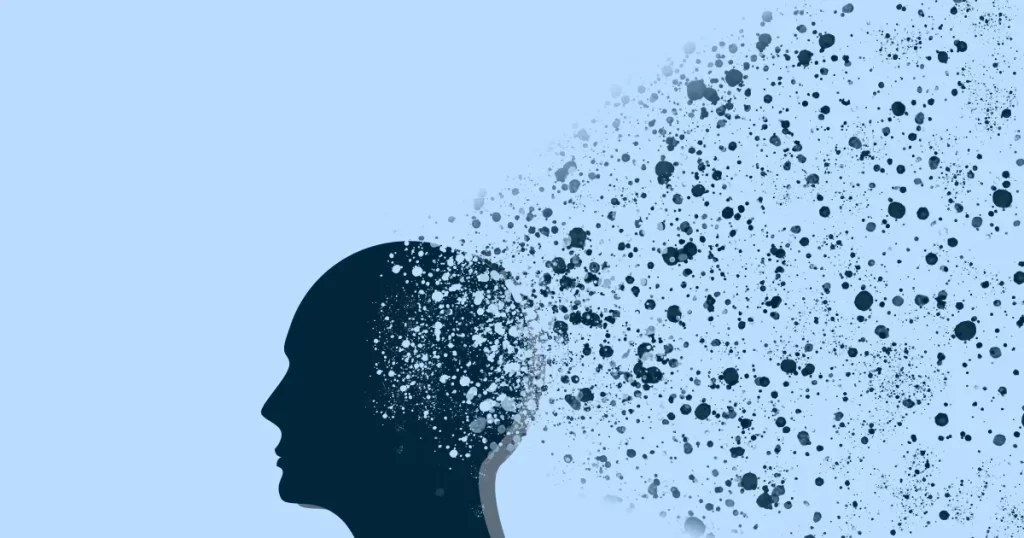Alzheimer’s disease is a complex neurodegenerative condition that progressively damages the brain’s neurons, leading to cognitive decline, memory loss, and behavioral changes. This article explores how Alzheimer’s disease alters the brain’s structure and functionality, from protein buildup to brain atrophy, and discusses the affected brain regions, symptoms, and potential treatments.

Understanding Neurodegeneration in Alzheimer’s Disease
Alzheimer’s disease is characterized by the gradual deterioration and eventual death of neurons, which are the brain cells responsible for transmitting signals and energy. This neurodegenerative process disrupts the brain’s communication pathways, affecting memory, decision-making, emotional regulation, and more. Below, we examine the primary mechanisms driving these changes.
Abnormal Protein Buildup in the Brain
Senile Plaques
A hallmark of Alzheimer’s is the accumulation of beta-amyloid protein fragments that form clusters known as amyloid plaques. These plaques disrupt synaptic connections by interfering with communication between nerve cells. Over time, the buildup of beta-amyloid 42, the most toxic protein fragment, contributes to neuronal death and the symptoms of Alzheimer’s.
Neurofibrillary Tangles
Another key factor is the accumulation of tau protein. In a healthy brain, tau stabilizes microtubules, essential structures for transporting nutrients within cells. However, in Alzheimer’s, tau proteins become tangled, causing the cell’s transport system to collapse. This leads to nutrient deprivation and cell death.
Loss of Neural Connections
Memory and cognitive abilities rely on signals transmitted across billions of synaptic connections in the brain. The disruption caused by amyloid plaques and tau tangles results in synaptic loss. Damaged synapses lead to flawed signaling, affecting the brain’s ability to process, store, and retrieve information. Research suggests synaptic damage is a significant factor in cognitive decline associated with Alzheimer’s.
Brain Inflammation
Role of Glial Cells
Glial cells, which support and protect neurons, play a critical role in maintaining brain health. In Alzheimer’s, microglia—a type of glial cell—fail to clear beta-amyloid plaques effectively. This malfunction triggers an inflammatory response, exacerbating neurodegeneration.
Oxidative Stress and Reduced Glucose Levels
Alzheimer’s disease reduces blood flow and glucose supply to the brain. This shortage induces oxidative stress, further contributing to inflammation and neuronal damage. Current research is exploring ways to mitigate these inflammatory processes to slow disease progression.
Brain Shrinkage (Atrophy)
Advanced Alzheimer’s leads to significant brain atrophy, particularly in the hippocampus, the region critical for memory and decision-making. This shrinkage results from the widespread loss of neurons, synapses, and glial cells, highlighting the extensive damage Alzheimer’s inflicts on brain structures.
Brain Regions Affected by Alzheimer’s Disease
Hippocampus and Temporal Lobe
The hippocampus is often the first region affected by Alzheimer’s, explaining early symptoms such as:
- Memory loss (e.g., forgetting names or misplacing items).
- Difficulty with language and decision-making.
Frontal Lobes
Alzheimer’s impacts the frontal lobes, leading to:
- Behavioral changes, such as social withdrawal.
- Reduced ability to plan and make decisions.
- Repetitive actions.
Parietal Lobes
The parietal lobes, responsible for sensory processing and spatial awareness, may show:
- Challenges in daily tasks like dressing or eating.
- Difficulty understanding language and emotions.
Occipital Lobe
As one of the last regions affected, the occipital lobe’s degeneration impairs visual processing, leading to:
- Difficulty recognizing colors, shapes, and sizes.
- Gradual vision loss.
Can Alzheimer’s Be Treated?
While there’s currently no cure for Alzheimer’s disease, treatments aim to slow its progression and manage symptoms. Options include:
- Medications: Cholinesterase inhibitors and memantine can temporarily improve cognitive functions.
- Lifestyle Changes: Regular exercise, a healthy diet, and mental stimulation may support brain health.
- Therapies: Cognitive behavioral therapy (CBT) and support groups can help patients and caregivers cope with challenges.
FAQs About Alzheimer’s Disease
1. What are the early signs of Alzheimer’s disease?
Early symptoms include memory loss, difficulty completing familiar tasks, trouble remembering names or words, and changes in mood or behavior.
2. How does Alzheimer’s affect memory?
Alzheimer’s damages the hippocampus, the brain region critical for forming and storing memories, leading to gradual memory loss.
3. Can Alzheimer’s be prevented?
While there’s no definitive prevention, a healthy lifestyle—including regular exercise, a balanced diet, and mental stimulation—may reduce risk factors.
4. How is Alzheimer’s diagnosed?
Diagnosis involves cognitive tests, neurological exams, brain imaging (like MRIs), and blood tests to rule out other conditions.
5. Are there new treatments for Alzheimer’s?
Research into therapies targeting amyloid plaques and tau tangles is ongoing, with some promising advancements in slowing disease progression.




